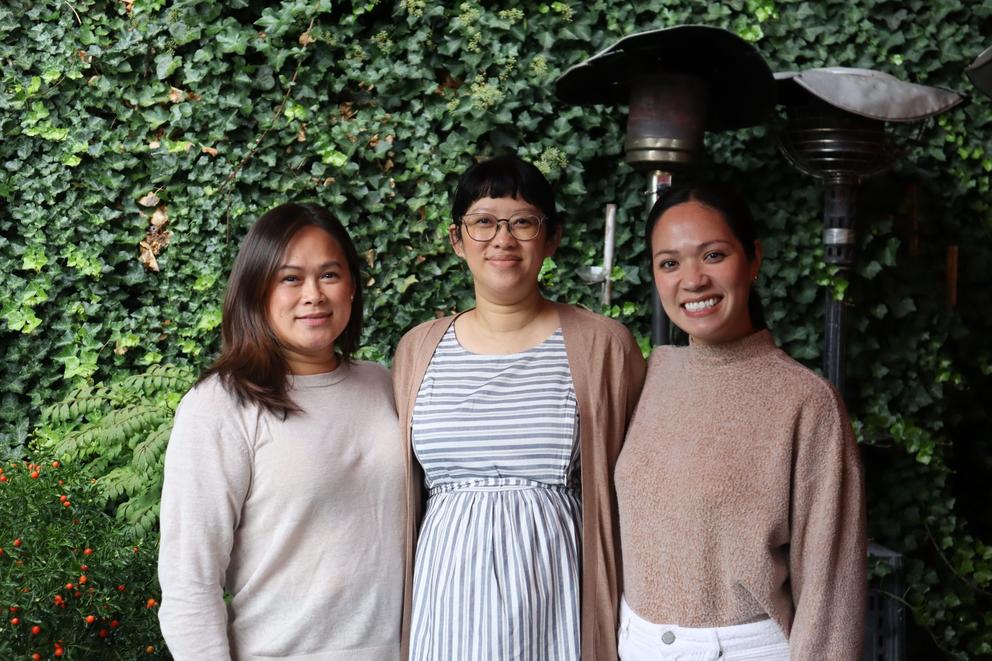FLS executive director Quynh Pham said the project will be located at 10th Avenue and South Jackson, on property now occupied by Dong Hing Market and Asia Pacific Wholesale. Pham said the two businesses will remain in place until demolition. Groundbreaking is slated for early 2025. The facility will open at the end of 2026.
Pham said FLS had identified at least six or seven other proposed sites for the cultural center, but the organization was either outbid or found the sites to be contaminated.
In 2011, Vietnamese activists and small-business owners formed FLS out of a deep concern that Little Saigon, a cultural and economic hub established by refugee leaders in the early 1980s, might perish because of the lack of diverse housing options, crime and displacement.
A 2012 community action plan, which identified community ownership and control as critical for turning conditions around, identified three key levers: a cultural center, more retail/commercial space and affordable housing.
During the pandemic, businesses in Little Saigon and Chinatown-International District (CID) struggled to keep their doors open as shoppers stayed away and vandalism and street crime surged. Exactly one year ago, the Viet-Wah Supermarket at 1032 South Jackson Street, the pillar of Little Saigon, closed after four decades, consolidating its operation in a newer Renton location.
In the recent months, drug-dealing, shoplifting and other criminal activity have clustered near 12th Avenue and South Jackson, prompting Seattle Times columnist Danny Westneat to write an August 30 piece gloomily headlined: “Seattle’s Little Saigon has already been forgotten.”
Pham acknowledged the daunting challenges to the neighborhood. But she holds out hope that the cultural center complex, dubbed the Little Saigon Landmark Project, will shift the narrative.
“The vision is to provide a community-controlled physical presence for Little Saigon and for our entrepreneurs,” she said.
The cultural center, Pham said, will be designed with an open floor plan, allowing cultural activities — exhibitions, music and dance, cooking and language classes — to take place alongside start-up businesses and other vendors. Regular annual programs will include the Vietnamese New Year Tết, the Mid-Autumn Festival, and the commemoration of April 30, 1975, marking the fall of Saigon.
Pham said that her organization has secured nearly $11 million in funds from the City of Seattle, King County, and the federal government for the cultural center. She anticipates raising an additional $3 million to $5 million to cover the costs of furnishing the space and supporting initial operations.
FLS is collaborating with the Seattle Chinatown International District Preservation and Development Authority (SCIDpda) to build 71 units of affordable housing for families on the same site, to include one-bedroom, two-bedroom and 3.5-bedroom units.
Jamie Lee, co-executive director of SCIDpda, said the entire structure will be five stories, with the cultural center on the ground level. FLS will own and operate the cultural center. SCIDpda will own and manage the housing.
“We expect the housing portion will cost $53 million, with about 40 percent of the funding coming from public sources and the rest from Low-Income Housing Tax Credit equity and private sources,” she said. SCIDpda hopes to secure commitments by next year.
Pham said the Little Saigon Landmark Project — coupled with construction of Little Saigon Park, scheduled for completion early next year at 1224 South King Street — will bring vibrancy to the core of Little Saigon.
Pham has been with FLS since its inception. She previously worked for Lee at SCIDpda, where the project vision was born. She said her passion for the Little Saigon Landmark Project stems from her upbringing as the child of small-business owners.
Her parents owned and operated the Như Ý Lucky Restaurant in Kent until its closure around 2005. Later, her mother owned Purity Nail & Spa in Covington, which shuttered during the pandemic. She recalled working part-time at both places while attending high school and college. She moved to Seattle to attend the University of Washington in 2006.
“Like other kids of small-business owners,” she said, “I have a crazy work ethic. For me, this comes full circle now. I have two kids — three and 10 months. If I don’t do this, what cultural legacy will my children inherit?”
Valerie Tran, FLS operations director, is equally passionate about the vision. She grew up in a predominantly white neighborhood in California’s Central Valley, without strong ties to the Vietnamese community. Her work as an urban planner in the CID filled a personal void and allowed her to meet Pham and other activists. She joined the FLS board in 2018.
“My hope is that the Landmark Project can be an anchor that restores a sense of place and longevity for the community,” Tran said. “I hope it is a place that elders can be proud of and that they see themselves reflected in it. I want it to be a place that sparks creativity in the next generation so that they can continue the legacy of the past generations. I think we can do it, and we are just getting started.”
Leeching Tran, vice-president of Viet-Wah and FLS board member, added that resilience is an integral part of Little Saigon.
“Everyone here is a survivor,” she said. “But it will take more than the determination of the business owners here to get the neighborhood back in great shape again. It’s a communal effort that involves businesses, government, visitors, community members and advocates. There are folks like FLS working hard to revitalize the neighborhood, but we can’t do it alone.”



